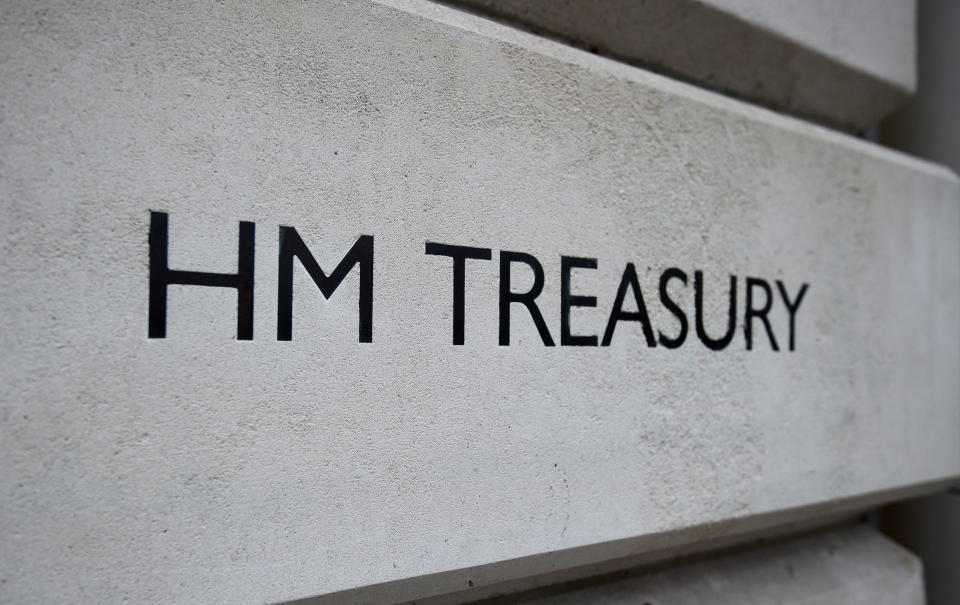Government fundraiser pushes back on Bank of England rescue claims

The government’s chief fundraiser has pushed back on suggestions from the Bank of England that it saved the UK government from bankruptcy in early March as the COVID-19 pandemic first struck.
Bank of England governor Andrew Bailey this week told Sky News that the bank had to intervene in bond markets in early March to help the government successfully issue new debt. The central bank unexpectedly slashed interest rates and pumped £200bn into the market for UK government debt, thereby stimulating demand.
“I think we would have a situation where in the worst element, the government would have struggled to fund itself in the short run,” Bailey said on a podcast.
The comments led to headlines claiming the Bank of England saved Britain from “effective insolvency” and going “bust”.
Senior leaders from the Debt Management Office (DMO), the body in charge of raising money for the government, pushed back on these claims on Wednesday.
Sir Robert Stheeman, chief executive of the DMO, told MPs that the sale of gilts — the market term of UK government debt — was “all fine and it was all orderly” on 19 March, the day the Bank of England intervened.
Stheeman said the DMO held a “fine, successful auction” with a “healthy cover ratio”, meaning there was enough demand to sell all the gilts on offer.

He admitted that conditions in the market “deteriorated” in the hours after the DMO’s auction but said there was no suggestion the office would struggle to raise money in future.
“To everyone’s surprise, including ourselves, the Bank stepped in and announced both its rate cut and £200bn QE programme which had a very stabilising effect on markets in general,” Stheeman said.
He added that it would not have been disastrous for the government’s finances if an auction was not fully covered.
“The market would view it as purely a technical imbalance, in terms of supply and demand at that point when an auction closes,” he told MPs on the Treasury Select Committee. “Uncovered auctions, in some jurisdictions, are very frequent events. It’s nothing to do with the credit issue or the ability of any government to raise funds.
“We don’t even need to access the ways and means [facility, an account held at the Bank of England] in order to make up any shortfall. We can do that normally through our cash management function, which is the other big functions of the Debt management office.”
Mel Stride MP, chair of the Treasury Select Committee, said the Bank of England’s intervention meant it was nonetheless “one step away from monetary financing”, whereby central banks directly fund government spending. The controversial policy can cause runaway inflation if not managed properly.
“I understand why people say that but I don’t agree with that,” Stheeman said.
“We issue in the primary market and the Bank is pursuing monetary policy through QE in the secondary market. Our objective is to finance government. The Bank’s objectives are focused solely on monetary policy.”
The UK government is expected to raise £300bn ($373bn) selling bonds this year, compared to a budget deficit of just £14bn last year.
Stheeman said he didn’t expect problems raising that much, saying: “Ultimately financial markets are extraordinarily flexible.”

